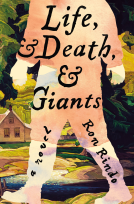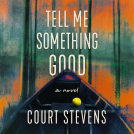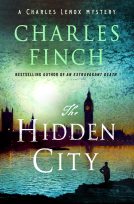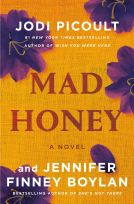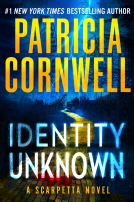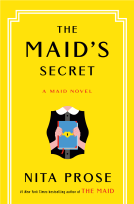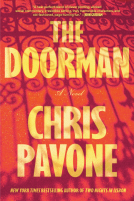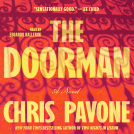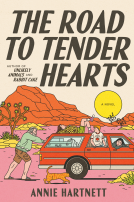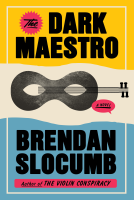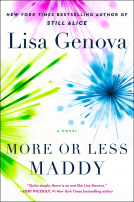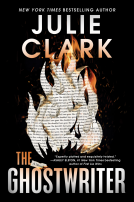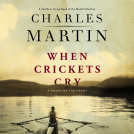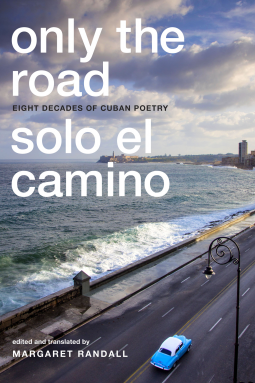
Only the Road / Sólo el Camino
Eight Decades of Cuban Poetry
by Margaret Randall
This title was previously available on NetGalley and is now archived.
Send NetGalley books directly to your Kindle or Kindle app
1
To read on a Kindle or Kindle app, please add kindle@netgalley.com as an approved email address to receive files in your Amazon account. Click here for step-by-step instructions.
2
Also find your Kindle email address within your Amazon account, and enter it here.
Pub Date Oct 14 2016 | Archive Date Sep 30 2016
Duke University Press | Duke University Press Books
Description
Margaret Randall is the author of dozens of books of poetry and prose, including Haydée Santamaría, Cuban Revolutionary: She Led by Transgression and Che on My Mind, both also published by Duke University Press.
Advance Praise
"The glory and triumph of Margaret Randall’s gathering comes directly from a half century spent in and out of Cuba, the work of a participant observer and a poet attuned to the work of others in a country long the seat of one of the world’s great centers of poetry with strong attachments to the world at large. Her voice as a translator is impeccable, close up and audible and open to all sides of what has been a long and complicated—and often contradictory—history. That so much is present here—old and new, simple and richly complex, at home and in exile—makes this an assemblage that goes to the limits of what such a gathering can possibly be. As a work for the understanding of what has happened so near to us and so far away, Only the Road is a book not only for the here and now but also for the ages."— Jerome Rothenberg
"Only the Road is a major cultural intervention at a crucial time when both the Spanish and English speaking literary world and beyond may experience—be moved by, delight in, weep with—the power and historical importance of a forceful body of work that defines an immense cultural legacy. This is a magnificent time to open the floodgates of a further to be known poetry; a magnificent tome to enhance our détente with Cuba. Cuba: its hopes and fears, its dreams, its promise, its extraordinary intellectual rigor, its poetic literacy and resistance, its survival, a poetry captured here of over eight decades, entangled with a unique and complicated history, that anyone paying attention today cannot ignore. Margaret Randall, prodigious poet, writer, thinker, translator, editor, teacher, activist has accomplished a task of a lifetime. She has given full voice to this small island’s powerfully diverse universe. The poets here are individually—racially, politically, sexually—complex, with life stories that are captured here as well, human and heroic. Randall exhibits great care and integrity to the task. Brilliant work. 'see that you don’t abandon them./islands are imaginary worlds./cut from the sea. they journey in the loneliness of rootless lands.' (Reina Maria Rodriquez)"— Anne Waldman, Poet, Artistic Director of the Kerouac School Summer Writing Program
Available Editions
| EDITION | Paperback |
| ISBN | 9780822362296 |
| PRICE | $28.95 (USD) |
Featured Reviews
I love that this book is truly bilingual, with parts of each poem in Spanish and English. I also love that there are mini bios of each poet before the poems. It is important for American libraries to carry books like this because it promotes Latino culture. It is a way not only for Latinos themselves to be reflected in the literature but it helps Americans to learn about Latino culture as well.
 Laura V, Educator
Laura V, Educator
The author's introduction is informative, enlightening, and concise. I like her discourse on the daunting task of translating poetry and how she approached the translation, delicately balancing language form with function. I was also informed and enlightened about the role of Poetry during and after the Revolution; how it changed and transformed according to the waves of perception of those in power. By giving us a brief portrait of the framework within which poets had to work, the author prepares us for a deeper understanding of the poetry we are about to read. Cuba, to most North Americans, is a distant mystery that the author leads us to understand deserves to be explored through the richness of its poetry. As I read the introduction, my anticipation of reading the poems continued to build, while a picture formed in my mind of the artistic atmosphere of that very foreign small island off the banks of Florida, and of its artists and poets, wringing their hearts into their work, coloured by the changeable winds of the political and economic climate.
The unedited format of the work I read was a bit confusing, but I am sure it will be refined upon publication. What I really enjoyed was that the poems appear in both Spanish and English. I really wish I could read Spanish as well as I read French, because I would have loved to enjoy the music of the words in their original language. I think it is a homage to the poets, and an added richness to the reader of Spanish, to see the poems in this way. I still perused the Spanish version, picking up the occasional word, and just absorbing the passion of the poetry.
Some poems left me untouched, while others were so beautiful that I left bookmarks scattered throughout! I think every serious reader of poetry will find, in this volume, gems that strike their fancy or touch them in some way. I am so glad to have had the opportunity to read this beautiful anthology of Cuban poetry. I look forward to visiting the land that inspired these poems...
 Holly W, Educator
Holly W, Educator
What a remarkable and moving compilation. I enjoyed Margaret Randall's selections of truly remarkable poetry immensely. The topics of these works are expansive and I thought Randall's note regarding gender was particularly interesting. This book is includes poets of many different backgrounds. I look forward to reading Breaking the Silences next.
Margaret Randall is an old-school feminist and socialist, and I recognized her name when this volume of Cuban poetry became available. Thank you to the author, Duke University, and Net Galley for permitting me to access the DRC, which I received free in exchange for this honest review.
Many people don’t know much about Cuba, the tiny island nation a mere 90 miles from the coast of Florida. The American media has distorted the Cuban Revolution for as long as I can remember. Before the revolution, which took place in 1959, Havana was like Bangkok, a place where little girls prostitute themselves so they won’t starve to death, where wealthy visitors can experience every pleasure, innocent or corrupt, known to humanity but where most citizens have little chance of even having their basic human needs met. Cuba’s alliance with the Soviet Union (USSR) helped the Cuban people defend themselves from US efforts to overthrow the revolutionary government, but the alliance also led to a period of Stalinist repression that darkened artists’ worlds for a period of time. Randall discusses all of this in her introduction. Following the period Cubans call the Rectification Period (reference mine), Stalinist practices were peeled away, and more freedom of expression created a more hospitable environment for artists, in addition to strengthening the revolution itself. In Cuba art is not privately sold as a general rule, and artists receive a salary for what they do, paid by the Cuban people.
Randall’s collection of poetry is encyclopedic, including a vast stylistic range representative of a range of generations, some little-known voices as well as a number of LGBTQ writers. Randall translates each poem and gives a comprehensive biographical note for each poet. If anything, I might have preferred a slightly more stripped down version, but what Randall has done is very scholarly she documents well.
Since this reviewer does not speak Spanish, I cannot evaluate the translations personally, but given that Randall’s background I would be astonished if it were not rock solid.
That said, I also found myself lamenting my lack of Spanish, because I know that the flow of sound is an important part of poetry, and even the best translator can’t rectify this. Those that speak Spanish will likely get more from the collection; both Spanish and English versions are included.
Those that love poetry and are interested in seeing the work of Cubans, and especially those that also speak Spanish, should get this excellent collection. It becomes available to the public October 14, 2016.
 Joseph S, Reviewer
Joseph S, Reviewer
Only the Road/Solo el Camino: Eight Decades of Cuban Poetry edited by Margaret Randall is a collection of Cuban poetry that takes a different angle on social change. Randall is a feminist poet, writer, photographer and social activist. She has lived for extended periods in Albuquerque, New York, Seville, Mexico City, Havana, and Managua. Shorter stays in Peru and North Vietnam were also formative. Randall lost her citizenship while married to a Mexican citizen. Upon returning to the US in 1984 she was ordered to be deported under the McCarran-Walter Act of 1952. The INS called her writings “against the good order and happiness of the United States.” and that “her writings go beyond mere dissent.”
Randall gives a detailed introduction to the poetry and each of the fifty-six poets receive a small biography before their poems are presented. What makes this collection unique is inclusion. Nearly half the poets presented are women and the LGBT community is also heard from. Women poets should not be much of a surprise in a society that voiced equality for all. The LGBT community is a surprise as that was actively suppressed by the religious tradition of the island and also the government.
What I was hoping to find was poetry about the revolution and possibly dissent of the Castro regime. There are only a few and one of my favorites from the collection did concern the revolution. Support or hate the Castro regime, there is something about a poet's idealistic view of revolution. It is the use of other methods outside of a gun or violence to inspire change. For the most part, however, I felt a Cuban identity was missing. Granted Randall does present the Spanish as well as her English translation, there seems to be a gray commonality in the poems. Nothing cries out with the color and flair one imagines of Cuba. With Randall's openly leftist views and her previous published (and reviewed) book Che on My Mind, I was expecting I was expecting a much more revolutionary tone to the collection.
This was a collection I looked forward to reading. The poetry is well selected as an anthology. The poems reflect a broad range of human feelings and emotions and could represent almost any society. There is a broad cross-section of poets and their views. The poems selected are varied in length and style. Randall’s translations are explained in the introduction as well as her attempts to keep both the words and the message intact in the translation. A very difficult task for any poetry translation. Although it was not what I anticipated the work is extremely well done and opens Cuba, literarily, to the American public. Perhaps my mistake, as well as many others, was in thinking Cubans would be so different than many of us.
 Tonstant W, Reviewer
Tonstant W, Reviewer
Only the Road/Solo el camino: Eight Decades of Cuban Poetry is a timely book. Now that Cuba is open to American tourism and visitors, it is appropriate that a comprehensive collection of Cuban poetry be made available in translation. After all, the best way to travel is with the poetry of the place you are going to read ahead and to read when you are there. There is an uncanny magic reading a poem in situ.
Margaret Randall collected the poems for this volume and did all the translation. As someone who knows the challenges of translation from Spanish to English, I think she has done a masterful job of keeping the spirit and the poetry intact. I am grateful that she provided both the Spanish and the English versions because even the best translations sometimes lack the urgency of the original.
Solo el camino begins with Tengo, a poem by Nicolás Guillén that captured the simple exultance of victory, the satisfaction from going without to having and of having not just material things, but having dignity. It is anthemic. Then there is the beautifully romantic tragedy of Emilio Ballads writing of the impossibility of gay love in mid 20th century Cuba in De toro modo. “Can you fathom the deaf grayness of that stone: never?” It is a poem that goes from romantic joy to broken despair in just a few words.
There are short, brilliantly witty poems from Samuel Feijó such as Poética which celebrates the concerts of birds that fill the forests, with not one getting credit for the score. Poems full of warmth and humor, though few words. Then there are the apocalyptic prophetic poems of María Elena Hernández. The poetry comes in all forms, long, short, angry and joyful, political, and romantic. It is representative of humanity, and of course, of Cuba. This anthology is also an exemplar in how to be mindful of diversity of voices. There are many women poets, a rarity in anthologies unless specifically anthologies of women writers. The introduction by Randall has a lot to teach anthologists about how to be mindful and how to do real outreach.
At times, some of the magic is lost in translation, not so much on the page, but aloud. Spanish has a fluency, a facility for poetry that English will never achieve. Randall effectively captures the meaning, the imagery and the heart of the poems, but cannot always produce the flow, the assonance, the aural magic of Spanish poetry. That magic comes in part from the construction of the language, the way verbs are conjugated, the fact there are not five ways to pronounce “a” and other innate qualities that we just don’t have in English.
5paws
I recommend Only the Road/Solo el camino highly. It’s a beautiful collection of poetry, some that has not been published in English translation and will be new to readers. It is also a corrective to the biased view of Cuban literature as repressed or propaganda depending on how widely published it is. We are opening up to Cuba finally, so it is incumbent on us to understand it better and how better than through its poetry.
Only the Road/Solo el Camino will be published on October 14, 2016.
Readers who liked this book also liked:
Jodi Picoult; Jennifer Finney Boylan
General Fiction (Adult), Literary Fiction, Women's Fiction
